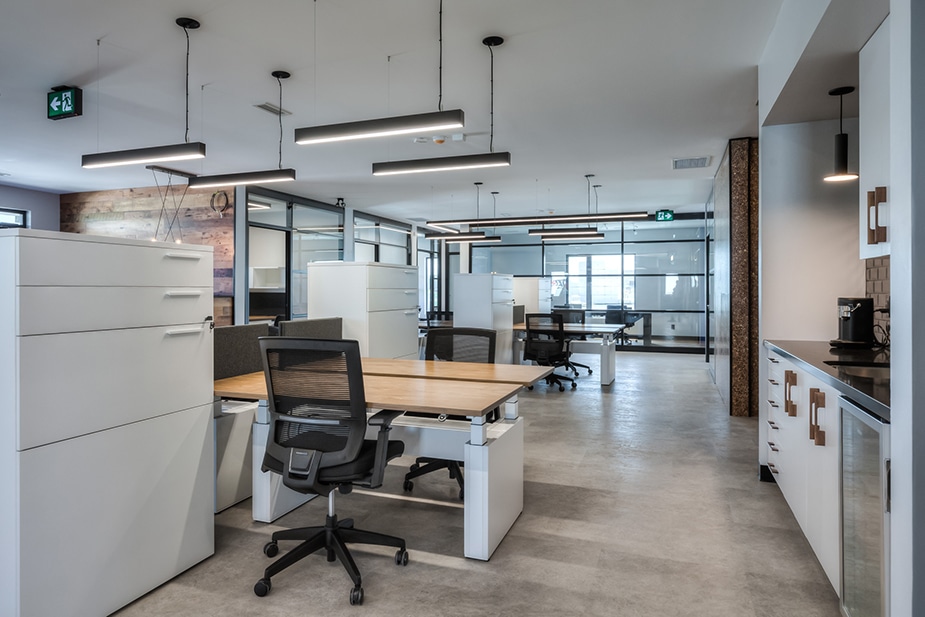Ergonomic office furniture is designed to provide maximum comfort and efficiency in the workplace. This article explores the numerous benefits that come with investing in ergonomic solutions.
Improved Posture
Ergonomic furniture supports better body alignment.
One of the primary benefits of ergonomic office furniture is its ability to promote improved posture. When seated in well-designed chairs and using appropriately sized desks, employees are less likely to slouch or adopt unhealthy positions. This alignment reduces the strain on the spine and helps maintain the natural curve of the back. Over time, improved posture can lead to fewer discomforts and musculoskeletal issues. Therefore, organizations that prioritize ergonomic furniture may see a decrease in employee discomfort levels.
Increased Productivity
Comfortable work environments lead to higher efficiency.
By providing ergonomic furniture, companies can create a workspace that enhances comfort and reduces fatigue. Employees who experience less physical strain are likely to concentrate better and work more efficiently. Studies indicate that ergonomically optimized workspaces can boost employee productivity by minimizing distractions caused by discomfort. Moreover, when employees feel comfortable, they are more inclined to stay engaged with their tasks, leading to greater overall output.
Reduced Risk of Injury
Ergonomic designs help prevent workplace injuries.
Investing in ergonomic office furniture significantly reduces the risk of work-related injuries. This includes repetitive strain injuries, back pain, and joint issues that often arise from poor seating and workstation arrangements. Ergonomic chairs paired with standing desks and adjustable equipment can help mitigate these risks. By fostering a safer work environment, organizations save on potential healthcare costs and lost productivity due to injuries. Fewer injuries also contribute to a harmonious workplace atmosphere.
Enhanced Employee Satisfaction
Ergonomics contribute to a happier workforce.
The implementation of ergonomic office furniture can lead to greater employee satisfaction. Workers who are comfortable and feel cared for by their employers are likely to have a more positive attitude towards their jobs. Ergonomic solutions reflect an organizations commitment to employee welfare. This can result not only in improved morale but also lower turnover rates, as employees are more likely to stay with a company that prioritizes their health and comfort.
Long-term Health Benefits
Investing in ergonomics promotes long-lasting health.
One of the most significant advantages of ergonomic furniture is its contribution to long-term health outcomes. By preventing chronic conditions associated with poor ergonomics, such as carpal tunnel syndrome and chronic back pain, employees can maintain their health over extended periods. This proactive approach to health can lead to fewer sick days and lower healthcare costs for employers. In the long run, ergonomic furniture not only influences physical well-being but also fosters a culture of health awareness within the workplace.
Flexibility and Customization
Ergonomic furniture often offers adjustable features.
Many ergonomic office products include features that allow customization to suit individual needs. Adjustable chairs, desks, and monitor stands can accommodate the diverse body types and preferences of employees. Such flexibility means that every worker can create their ideal workstation, promoting more effective work habits. The ability to adapt furniture settings also encourages movement throughout the day, which is beneficial for overall health and productivity.
Positive Impact on Company Image
A commitment to ergonomics enhances employer branding.
Organizations that invest in ergonomic office furniture often elevate their brand image. A workplace that visibly prioritizes employee comfort and health can attract top talent, showcasing a commitment to employee well-being. This positive perception can also resonate with clients and partners, portraying the organization as progressive and attentive to modern workplace standards. Ultimately, a strong reputation for workplace wellness can differentiate a company in competitive industries.
In conclusion, the benefits of ergonomic office furniture extend beyond comfort, impacting productivity, health, and employee satisfaction. By creating a supportive workplace environment, organizations can enhance overall performance and foster a healthier, more fulfilling workplace.

